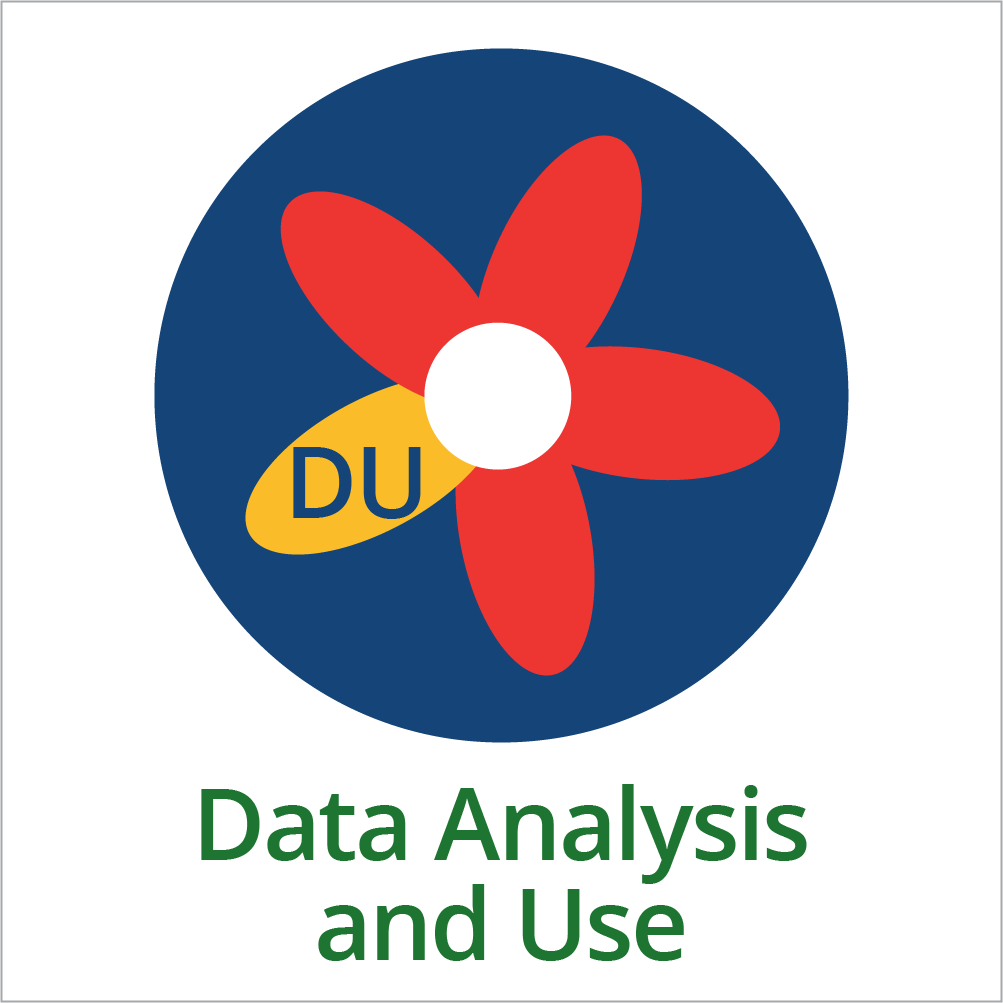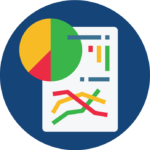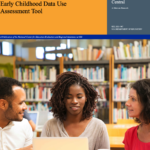
The effective use of Part C and Part B 619 data is fundamental to the achievement of positive outcomes for children with disabilities and families. Achieving positive outcomes for all children with disabilities requires ready access to IDEA services and the individualized provision of services and supports. All state systems should be using data regularly to see if high quality services are readily available throughout the state, to identify the root causes for any problems identified and to inform solutions. Part C and Part B 619 state staff need the knowledge and skills to formulate and answer critical questions about access, services and supports, and outcomes for the overall population of children and families and for subgroups within the state.
The purpose of the Data Analysis and Use subcomponent is to assist state leaders in facilitating ongoing use of quality Part C and Part B 619 data for program accountability, program improvement, and program operations at state and local levels. Part C and Part B 619 state and local staff benefit from using data effectively, but they need knowledge and skills to be able to formulate critical questions about the outcomes of services provided. They also need to exhibit data leadership by setting expectations and supporting the conditions that will lead to effective data use at state and local levels. Effective data use requires ongoing planning, analysis, and dissemination of data products. In many cases, data become more valuable when they are linked with other data, creating additional information from which new data products can be developed (e.g., child outcome data with child service data). Data products are defined as all types of materials containing data, such as, for example, data tables, presentations, and reports.
Linking data with other data (e.g., child outcome data with child service data, Part C with 619 data) allows the state to answer critical questions that could not be answered by either data set alone. As data leaders, Part C and Part B 619 state staff need to understand the power and potential concerns associated with linked data and be able to actively participate in planning efforts that involve their linking program’s data with other data sets.
An assumption underlying the framework is that many different kinds of individuals, including practitioners and families of children with disabilities, should understand and use data. A data user is any person who accesses the data in any form, including raw data, data tables, data displays, reports, or any other data products. To be a skilled data user, individuals need professional development and access to technical expertise that builds their capacity. All data must be shared and used in compliance with data governance policies and with careful attention to the protection of personally identifiable information.
To achieve positive outcomes based on continuous improvement of programs and systems, the state needs to ensure availability of quality data; analyze, prepare, and disseminate a variety of data products; and provide leadership to build the capacity of state and local staff and stakeholders for effective data use.
This subcomponent consists of three sections. The first section, Data Availability, addresses activities that ensure that users of the data have the quality data they need when they need it. Next, the Data Analysis section addresses activities involving planning and conducting data analyses that meet the needs of the data users. The third section addresses Data Leadership and Data Use, the activities that support creating and maintaining the conditions for a culture of data use at state and local levels.
Section 1: Data Availability
Quality Indicator DU1
Part C/619 state staff implement the processes required to ensure quality data are available for analyses.
Section 2: Data Analysis
Quality Indicator DU2
Part C/619 state staff plan and prepare for data analyses.
Quality Indicator DU3
Part C/619 state staff conduct data analyses that meet the needs of the state agency and other users.
Section 3: Data Leadership and Data Use
Quality Indicator DU4
State Part C/619 coordinators function as data leaders to create and maintain the conditions for a culture of data use at the state level.
Quality Indicator DU5
Part C/619 state staff lead an ongoing data-informed decision-making process (i.e., review of data analyses, interpret results, and make decisions informed by the data).
Quality Indicator DU6
Part C/619 state staff support local programs or districts in building a culture of data use.
Resources Related to Data Analysis and Use
 Critical Questions About Early Intervention and Early Childhood Special EducationWhat questions should data users, such as program directors, advocates, and policymakers, be asking?Read more
Critical Questions About Early Intervention and Early Childhood Special EducationWhat questions should data users, such as program directors, advocates, and policymakers, be asking?Read more Data Visualization ToolkitThis DaSy toolkit provides guidance for effectively creating and presenting data visuals.Read more
Data Visualization ToolkitThis DaSy toolkit provides guidance for effectively creating and presenting data visuals.Read more Planning, Conducting, and Documenting Data Analysis for Program ImprovementThis 2015 document was developed to help technical assistance (TA) providers and state staff define and limit the scope of data analysis for program improvement ...Read more
Planning, Conducting, and Documenting Data Analysis for Program ImprovementThis 2015 document was developed to help technical assistance (TA) providers and state staff define and limit the scope of data analysis for program improvement ...Read more Data Meeting ToolkitThis toolkit is a suite of tools that groups can use to guide conversation around data and support databased decisionmaking. The toolkit provides resources to support ...Read more
Data Meeting ToolkitThis toolkit is a suite of tools that groups can use to guide conversation around data and support databased decisionmaking. The toolkit provides resources to support ...Read more Data Culture ToolkitThe DaSy toolkit is a resource containing information, guidance, and templates to help Part C and Part B 619 program staff build effective data teams ...Read more
Data Culture ToolkitThe DaSy toolkit is a resource containing information, guidance, and templates to help Part C and Part B 619 program staff build effective data teams ...Read more Early Childhood Data Use Assessment ToolThis resource is designed to identify and improve data use skills among early childhood education (ECE) program staff so that they can use data to ...Read more
Early Childhood Data Use Assessment ToolThis resource is designed to identify and improve data use skills among early childhood education (ECE) program staff so that they can use data to ...Read more Answering Key Questions with an Early Childhood Data SystemThis 2013 issue brief describes a 7-step process to design and use essential questions in an early childhood data system. Suggested stakeholders, their roles, and ...Read more
Answering Key Questions with an Early Childhood Data SystemThis 2013 issue brief describes a 7-step process to design and use essential questions in an early childhood data system. Suggested stakeholders, their roles, and ...Read more Data use for continuous quality improvement: What the Head Start field can learn from other disciplines, a literature review and conceptual frameworkThis report includes a comprehensive literature review and conceptual framework produced as part of the Head Start Leadership, Excellence, and Data Systems project. The review ...Read more
Data use for continuous quality improvement: What the Head Start field can learn from other disciplines, a literature review and conceptual frameworkThis report includes a comprehensive literature review and conceptual framework produced as part of the Head Start Leadership, Excellence, and Data Systems project. The review ...Read more
Published March 2022.

